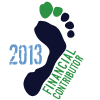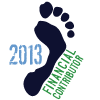Since I started tuning into this forum regularly, I've noticed that just about every runner who takes their running seriously soon wants to see how far they can go, and so puts a premium on distance. (Longer runs may also help us shore up the runner versus jogger identity vexation.)
Also, as I’ve looked through some of the material on elite distance runners, I see most of them follow something like an 80 percent slow and long to 20 percent speed work ratio. If I followed this, I would do two to three longish runs per week, and just one day per week on hills, tempo, or sprints.
But I’m wondering if I should put a premium on speed, and never run more than 30-60 minutes at a time, in order to avoid repetitive stress problems (although greater speed would create greater impact forces, so the stress would be greater, but less sustained).
I just checked out the Ask the Docs and Health, Nutrition, Injuries forums for the first time, and apparently barefoot running hasn't been a cure-all for a lot of common shod runner's ailments. I would guess a lot of these are from repetitive stress of one kind or another, which the gentler gait of BFR may have ameliorated but hasn't done away with altogether.
So I’m wondering if, for example, 3 miles x 6 to 7 days per week is just as good as 5-7 miles x 3 days per week, or if 5-6 miles x 6 to 7 days per week is the equivalent to 8-12 miles x 3 days per week.
Less distance, faster pace, but no or few rest days. Less repetitive stress per run, but less recovery time.
I used to ride a bike 100 miles a day while traveling for two years, so I understand the endurance bug, and it would be nice to see what I’m capable of running-wise, but right now with work and family life, I only have general fitness goals. Plus, I like running faster.
Any thoughts? Injury-wise? Health-wise? Training-wise? Other-wise?
Also, as I’ve looked through some of the material on elite distance runners, I see most of them follow something like an 80 percent slow and long to 20 percent speed work ratio. If I followed this, I would do two to three longish runs per week, and just one day per week on hills, tempo, or sprints.
But I’m wondering if I should put a premium on speed, and never run more than 30-60 minutes at a time, in order to avoid repetitive stress problems (although greater speed would create greater impact forces, so the stress would be greater, but less sustained).
I just checked out the Ask the Docs and Health, Nutrition, Injuries forums for the first time, and apparently barefoot running hasn't been a cure-all for a lot of common shod runner's ailments. I would guess a lot of these are from repetitive stress of one kind or another, which the gentler gait of BFR may have ameliorated but hasn't done away with altogether.
So I’m wondering if, for example, 3 miles x 6 to 7 days per week is just as good as 5-7 miles x 3 days per week, or if 5-6 miles x 6 to 7 days per week is the equivalent to 8-12 miles x 3 days per week.
Less distance, faster pace, but no or few rest days. Less repetitive stress per run, but less recovery time.
I used to ride a bike 100 miles a day while traveling for two years, so I understand the endurance bug, and it would be nice to see what I’m capable of running-wise, but right now with work and family life, I only have general fitness goals. Plus, I like running faster.
Any thoughts? Injury-wise? Health-wise? Training-wise? Other-wise?
































